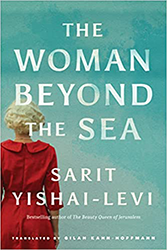Who hasn’t dreamed of retiring to an idyllic estate in the English countryside? In Lauren Belfer’s Ashton Hall, that vision turns out to be a bit more complex when Hannah Larson visits her ailing relative at the titular historic manor house alongside Nicky, her young son with special needs. What starts out as a family visit becomes much more unexpected the moment Nicky comes across a hidden room cloistering a sixteenth-century skeleton.
Ashton Hall is not a ghost story (though it does hark back to classic works of gothic fiction). Rather, the discovery of the skeleton and the mystery surrounding it propel Hannah to take stock of her own life. As she mulls over the possible identity of the deceased woman, she reflects on her unfinished PhD, her dependence on her husband, and the struggles of raising a neurodivergent son.
A colorful cast of characters inhabits Ashton Hall, such as the estate administrator Felicity Gardner and Dr. Tinsley, an archivist with a secret smoking habit. The result is that both Ashton Hall and its characters feel like a splendid work of imagination as well as deeply real. Anglophile readers will long to wander the corridors of this magnificent estate, and perhaps visit the gift shop as well.
Hannah’s questions of belonging directly relate to her ambiguous Jewish identity. Born to a single mother who taught biology, chemistry, and Latin at a private school, Hannah was raised to be fluent in both Ancient Greek and Latin, and to pursue the career in academia from which her mother, as a younger woman, had been barred. Margot, who was saved by the Kindertransport (“children’s transport” in German)during the Holocaust, didn’t raise Hannah as a religious Jew. The lack of religious structure leaves her daughter wondering about her own spirituality — all as she explores the history of the woman in Ashton Hall, trapped possibly because of her Catholic faith.
Belfer’s writing is gorgeous and highly detailed, such that Hannah’s voice reads as clear and precise, never made unbelievable by a false note. Her relationship with her son is one of the most effective portrayals of raising a child with special needs in recent literature. Each character has a rich backstory and inner life — and the history of the estate is fascinating in its own right.
Ariella Carmell is a Brooklyn-based writer of plays and prose. She graduated from the University of Chicago, where she studied literature and philosophy. Her work has appeared in Alma, the Sierra Nevada Review, the Brooklyn review, and elsewhere.





